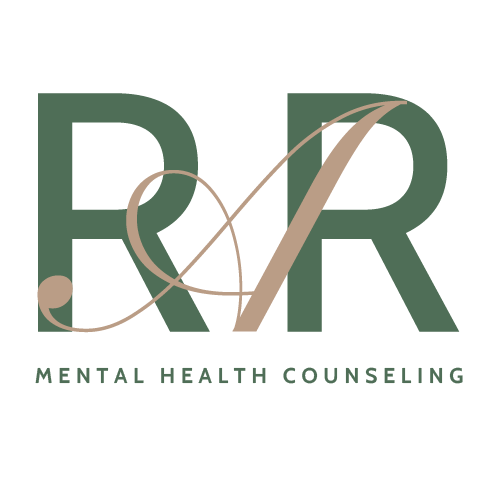Have you ever felt like there’s a weight on your shoulders, a heavy burden from experiences you can’t quite shake?
You’re not alone. Many of us carry the invisible scars of trauma, and sometimes, those scars can be complex.
Complex trauma refers to repeated or prolonged exposure to traumatic events, often during childhood. It can be caused by abuse, neglect, violence, or any situation that leaves you feeling unsafe and powerless for a long time. If you’re wondering if your experiences might be complex trauma, here are some questions that might resonate with you:
Is what I experienced considered complex trauma?
Complex trauma can feel like a confusing web of experiences. Unlike a single traumatic event, like a car accident or a natural disaster, complex trauma unfolds over time, often during your developmental years. It can be difficult to pinpoint exactly what happened and how it might be impacting you now.
Here’s a breakdown of some common experiences that can contribute to complex trauma:
- Childhood abuse (physical, emotional, sexual): This can leave you feeling unsafe, unloved, and worthless.
- Neglect: If your basic needs for food, shelter, or emotional connection weren’t met consistently, it can have a lasting impact on your sense of security and self-worth.
- Bullying: Being bullied repeatedly can erode your confidence and make it difficult to trust others.
- Witnessing violence: Seeing violence in your home or community can be deeply disturbing and create a sense of fear and helplessness.
- Living in a war zone or other dangerous environments: Constant exposure to violence and threat can leave you feeling traumatized and hypervigilant.
The key factor in complex trauma is the feeling of being unsafe, unheard, and powerless for a prolonged period. This can happen even if the traumatic events themselves seem minor on the surface. For example, if you were constantly criticized or belittled by a parent, it could have a significant impact on your self-esteem and sense of self-worth.
Here are some additional signs that your experiences might fall under the umbrella of complex trauma:
- Difficulty regulating emotions: You might find yourself easily angered, overwhelmed, or withdrawn.
- Trouble trusting people: Complex trauma can make it hard to form healthy, trusting relationships.
- Negative self-beliefs: You might have a harsh inner critic or struggle with low self-esteem.
- Dissociation: You might experience feelings of detachment or unreality.
- Unhealthy coping mechanisms: You might turn to substances, self-harm, or risky behaviors to numb emotional pain.
If you recognize any of these experiences or symptoms in yourself, it’s worth seeking professional help. A therapist can help you explore your past experiences, develop healthy coping skills, and rebuild your sense of self.
I keep reliving the past. Are these flashbacks?
The feeling of being pulled back into a painful experience from the past can be incredibly disorienting and scary. These vivid relivings might be flashbacks, a common symptom of complex trauma.
Flashbacks can come in many forms. You might experience them visually, seeing the traumatic event unfold before your eyes. Sometimes they’re auditory, filled with the sounds and voices from that time.
Flashbacks can also be emotional, flooding you with the same intense fear, anger, or sadness you felt during the trauma. In some cases, they might even be physical, with your body mimicking the sensations of the traumatic event, like a racing heart or sweating.
Triggers for flashbacks can be anything that reminds you of the trauma, even if it seems subtle. A familiar scent, a certain song, or even a location can trigger a flashback. It’s important to remember that you’re not crazy or going back in time.
Flashbacks are your brain’s way of trying to process the trauma, and while they can be overwhelming, there are ways to manage them.
Here are some tips for coping with flashbacks:
- Grounding techniques: These exercises can help you anchor yourself in the present moment. Try things like focusing on your breath, naming five things you can see or hear, or tensing and relaxing different muscle groups.
- Safe space: Identify a safe space, either physically or mentally, where you can go to calm yourself down during a flashback.
- Self-compassion: Be gentle with yourself. Flashbacks are a symptom of trauma, not a personal failing.
- Talk to a therapist: A therapist can help you understand your flashbacks and develop coping mechanisms that work for you. They can also teach you skills like EMDR (Eye Movement Desensitization and Reprocessing) which can be helpful in processing trauma.
Remember, flashbacks don’t have to control you. By learning to manage them, you can take back control of your present and move forward in your healing journey.
Why do I have trouble trusting people?
The world can feel like a dangerous place after experiencing complex trauma. You may have been hurt by the very people who were supposed to protect you, leaving you feeling unsafe, unheard, and alone. This can make it incredibly difficult to trust others, even those who seem kind and well-meaning.
Here’s how complex trauma can impact your ability to trust:
- Broken Attachments: During childhood, we learn about trust and healthy relationships through our primary caregivers. If those relationships were abusive, neglectful, or unpredictable, it can be hard to form secure attachments later in life.
- Hypervigilance: Complex trauma can make you hypervigilant, constantly scanning for signs of danger. This can make it difficult to relax and feel safe enough to trust someone.
- Fear of Betrayal: The fear of being hurt again can be a powerful motivator to keep people at arm’s length. You might avoid intimacy or close relationships altogether.
- Negative Self-Beliefs: Complex trauma can lead to negative self-beliefs, making you feel unworthy of love or connection. This can make it difficult to believe that someone could truly care about you.
Building Trust Takes Time
The good news is that trust can be rebuilt, even after complex trauma. It takes time, patience, and a willingness to take small steps. Here are some ways to start:
- Identify Your Triggers: What situations or behaviors make it difficult for you to trust someone? Understanding your triggers can help you avoid them or develop coping mechanisms.
- Start Small: Begin by building trust with safe and reliable people. This could be a therapist, a supportive friend, or a family member who has shown you consistent care.
- Communicate Your Needs: Let people know what you need to feel safe and respected in a relationship. This could be clear communication, boundaries, or simply time.
- Celebrate Milestones: Building trust is a journey, not a destination. Acknowledge and celebrate the progress you make, no matter how small.
- Seek Professional Help: A therapist can be a valuable guide on your healing journey. They can help you understand your experiences, develop coping mechanisms for managing distrust, and teach you skills for building healthy relationships.
Many people who have experienced complex trauma find it difficult to trust. With time, self-compassion, and the right support system, you can learn to trust again and build strong, fulfilling relationships.
Why am I so easily angered or emotionally overwhelmed?
Complex trauma can leave you feeling like an emotional rollercoaster. You might experience intense anger, sadness, fear, or a combination of all three, often triggered by seemingly minor events. This emotional dysregulation is a common symptom, and it’s not your fault.
Here’s how complex trauma can disrupt your emotional regulation:
- Overactive Amygdala: The amygdala is the part of the brain responsible for processing fear and threats. Trauma can leave your amygdala in a heightened state, making you more sensitive to potential dangers and quicker to react with anger or fear.
- Disrupted Nervous System: Complex trauma can disrupt the communication between your brain and body, making it difficult to switch from a stressed state to a calm one. This can leave you feeling constantly on edge and easily overwhelmed.
- Emotional Avoidance: As a coping mechanism, you might have learned to suppress your emotions during your traumatic experiences. However, these emotions don’t disappear, they just get buried. Later, they can resurface unexpectedly and with greater intensity.
Learning to Manage Your Emotions
The good news is that you can learn to manage your emotions and develop healthier coping mechanisms. Here are some strategies to get you started:
- Mindfulness: Mindfulness practices like meditation can help you become more aware of your thoughts and emotions without judgment. This allows you to create a space between your emotions and your reactions.
- Breathing Exercises: When you feel overwhelmed, deep, controlled breathing can activate your parasympathetic nervous system, promoting relaxation and calming your body down.
- Identify Your Triggers: What situations or topics tend to trigger your anger or emotional overwhelm? Understanding your triggers can help you avoid them or develop coping mechanisms in advance.
- Healthy Outlets: Find healthy ways to express your emotions. This could be through exercise, journaling, creative activities, or talking to a trusted friend or therapist.
- Therapy: A therapist can teach you valuable skills for emotional regulation, such as cognitive behavioral therapy (CBT) which helps you identify and challenge negative thought patterns that contribute to strong emotions.
Is there help available to heal from complex trauma?
Absolutely! Healing from complex trauma is a journey, but you don’t have to walk it alone. Therapy can be a powerful tool for processing your experiences, developing coping skills, and rebuilding your sense of self.
There are also support groups available where you can connect with others who understand what you’re going through.
Remember, healing is possible.
It may not be a linear path, but with self-compassion, the right support system, and a commitment to your well-being, you can move forward and build a life that feels safe, strong, and hopeful.
You are not defined by your past experiences. You have the power to heal and thrive.
If you like this content and want to talk to one of our therapists about getting help, please reach out below:


